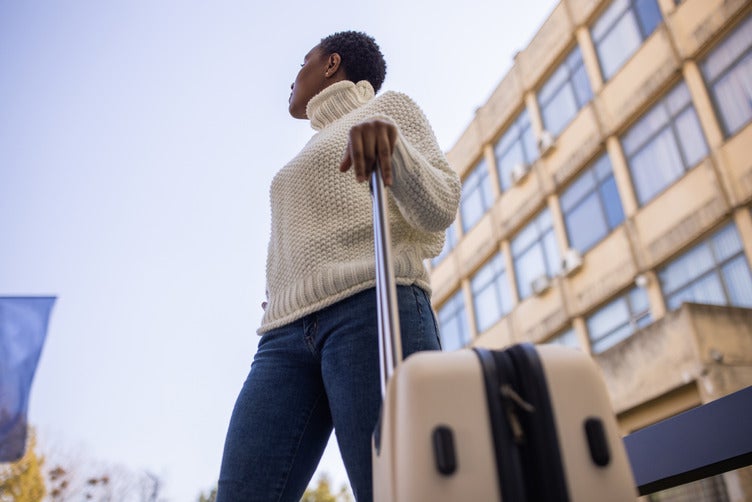 CUPE members may need to travel for union events like conferences, meetings and education. This guide offers advice to keep members safe. Remember to report any suspicious activity or incidents to the hotel staff or CUPE event organizers.
CUPE members may need to travel for union events like conferences, meetings and education. This guide offers advice to keep members safe. Remember to report any suspicious activity or incidents to the hotel staff or CUPE event organizers.
Before you travel
- Tell someone you trust about travel plans, including your travel route, travel method, arrival time, flight number, hotel location and phone number.
- Set a check-in time for when you arrive. Have a plan for what to do if you miss this check-in. Flight statuses should be checked for any delays.
Medication
-
Carry all necessary medications in your carry-on bag.
-
Bring several extra days’ supply just in case.
Luggage
-
Use luggage tags that hide your full name or home address.
During the event
Venue safety
-
Identify emergency exits and evacuation muster points.
-
Find out if there is a first aid station and defibrillator on site, and where they are.
-
Learn the location of the nearest hospital.
-
Pay attention to signs to avoid areas that require key access to exit.
Name badges and lanyards
-
Take off your badges and lanyards after meetings and keep them hidden in a bag or pocket. This prevents unwanted attention by concealing your name, CUPE membership and visitor status. If you are tracked to your hotel, this information could be misused by people with harmful intensions.
Social media safety
-
Don’t “check in” on social media or post your location while at the hotel.
-
Sharing your location can risk your and your colleagues’ safety and may increase the risk of robbery at your home.
-
Wait to post trip pictures until you’ve returned home, and mention your trip was in the past.
Hotel safety
Although CUPE events are usually held at safe, unionized hotels, members should stay alert for anyone trying to exploit travelers. Pay attention to your surroundings and follow these safety practices:
Check-in
-
Watch the lobby for anything unusual.
-
Keep your luggage close or with the concierge.
-
Use only your first initial and last name at check-in
-
Don’t share your room number or anyone else’s in earshot of strangers.
-
If the room number is announced loudly, ask for a different room number.
-
Remove your key from the envelope with the room number written on it. This way, if you lose your key, others will not know what room it opens.
Elevators
-
If alone, wait for an empty elevator.
-
When possible, let others choose their floors first.
Exits
-
Familiarize yourself with all emergency exits.
-
Use a map or app to get to know the area around the hotel.
Rooms
-
When you arrive, firmly shut the door.
-
Do a quick search of the room, then attach the deadbolt and double lock the door (use the door stop).
-
Cover peep hole with tape or band-aid for privacy.
-
Leave lights or TV on when you’re out.
-
Keep your room key and cell phone (because it has a flashlight) by the bed, and your clothes and shoes in an accessible place so if there is an emergency like a fire you can leave quickly.
-
Never open the door for someone you don’t know or were not expecting. If they continue to engage, call the front desk or security.
Staying safe in an unfamiliar city
-
Carry the hotel’s contact information in the local language and English/French in case you get lost.
-
Travel in groups and in well-lit, frequently traveled areas. Walk with confidence to avoid looking like a tourist.
-
Inform a fellow member or trusted person about your travel plans and expected return time.
-
Only bring what you need for the outing. Leave other valuables in the hotel safe.
-
Avoid displaying money, expensive electronic devices, jewelry or watches.
-
Only shop at reputable stores and be cautious of deals that seem too good to be true.
-
Long purse straps can be easily cut, so use a purse or bag with a short strap.
-
Distribute your money across several pockets to minimize loss in case of theft.
-
Carry wallets in your front pockets or use a chest pouch.
-
Use unionized, licenced taxi services and be cautious about discussing personal information within the driver’s hearing.
-
If the CUPE event you are attending offers a Safe Walk, use it—especially when it is dark outside or you’re uncertain about the location of your hotel.
-
If you use drugs, research the laws in place and resources available in the regions you’ll be visiting.


